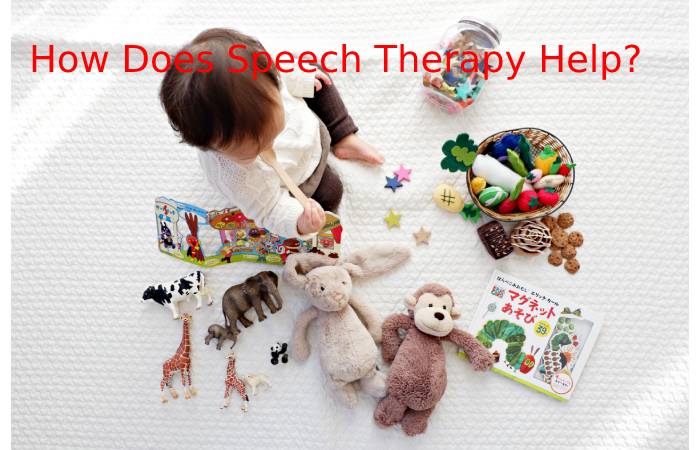Table of Contents
Toddlers’ Speech
Improve My Toddlers Speech – How Are Speech Or Language Delays Diagnosed?
If I want to Improve My toddlers speech, my child should have a good rapport with me and not at all inconvenient for my approach. The child might have a speech problem. It is essential to see a speech therapist (speech-language pathologist) as soon as possible. You can find a speech therapist yourself or ask the health professional who brings your child to recommend one.
The speech therapist will evaluate your child’s speech and language. He will give her a series of standardized tests and check whether or not she has reached the various milestones in speech and language development.
The speech therapist will also assess:
- what your child understands (known as receptive language)
- what your child can say (known as expressive language)
- development of sounds and Clarity of Speech
- your child’s oral-motor status (how the mouth, tongue, palate, etc. work together when speaking, as well as eating and swallowing)
Based on the test results, the speech therapist may recommend speech therapy sessions for your child.
What Is A Delay In Speech Or Language Development?
Speech and language problems differ but often overlap. For example:
A child with a speech delay may be able to use words and phrases to express his ideas, but what he says may be difficult to understand. A child with a language delay may say words correctly but cannot combine two words into a sentence.
Improve My Toddlers Speech – How Can Parents Help?
Parents are an essential part of helping their children with speech or language problems.
Here are a few ways to support speech development at home:
Focus on the message. Talk to your baby, sing to him and inspire him to imitate sounds and gestures. Read to your child. Start reading to him when he is just a baby. Look for age-appropriate books, hardcover or softcover, and have pictures that encourage your child to look at them as you name them.
Take advantage of everyday life situations. To reinforce your child’s speech and language, spend the entire day talking to him. Name the foods you buy at the grocery store, explain what you are doing while preparing food or cleaning a room, and point out items around the house. Talk to him, but avoid using “baby talk,” the way babies speak.
Recognizing and treating a speech or language delay as early as possible is the best attitude. Call the doctor if you have any concerns about your child’s speech or language development.
Improve My Toddlers Speech – Causes Of Speech Or Language Delays
A speech delay in a child may be due to:
- oral problems, such as changes in the tongue or palate
- a short frenulum (the crease under the tongue), which can limit tongue movements
Many children with speech delays have oral-motor problems. These occur when there is a problem in the brain areas responsible for speech production. This makes it difficult for the child to coordinate the lips, tongue, and jaw to produce speech sounds. These children may have other oral-motor problems, such as feeding difficulties.
Improve My Toddlers Speech ,Hearing problems can also affect speech. Therefore, an audiologist should test a child’s hearing whenever there is a concern about address. Hard of hearing children may have trouble saying, understanding, imitating, and using language. Ear infections, especially chronic infections, can affect hearing. But as long as one ear has normal hearing, both speech and language will develop normally.
How Does Speech Therapy Help?

The speech therapist will work with your child to improve their language skills and tell you what you can do at home to help your child.
Speech And Language Different
Speech is the verbal expression of language and includes articulation, which is how we form sounds and words. Language is expressing and receiving information. It refers to understanding and being understood through communication: verbal, non-verbal, and written.
Signs Of A Speech Or Language Delay
A baby who does not react to sound or does not vocalize should be estimated by a doctor as soon as possible. But it’s often hard for parents to know if their child is taking longer to reach a developmental milestone in speech or language development or if she has a problem.
Here are some things you should watch out for. Call your child’s doctor if:
- by 12 months: does not use gestures, such as pointing or waving goodbye
- with 18 months: prefers to communicate with gestures instead of vocalizations
- at 18 months: has difficulty imitating sounds
- has difficulty understanding simple verbal commands
- with two years: only imitates the speech or actions of others but does not generate words or phrases spontaneously
- by two years: only emits a few sounds or words repetitively and cannot use oral language to communicate more than their immediate needs
- with two years: cannot follow simple instructions
- age 2: has a strange tone of voice or strange pronunciation (such as hoarseness or nasality)
- Also, call the doctor if your child’s speech is more challenging to understand than would be expected based on his age:
The child’s parents and regular caregivers should understand about 50% of what a 2-year-old says and about 75% of what a 3-year-old says. By four years of age, a child should be able to understand almost everything, even when talking to strangers.
Conclusion
Toddler’s speech is the verbal expression of language and includes articulation, which is how we form sounds and words. Language is expressing and receiving information. It refers to understanding and being understood through communication: verbal, non-verbal and written . As with other skills and developmental milestones, the age at which children learn a language and begin to speak can vary. Knowing a few things about speech and language development can help parents understand whether or not they should be concerned.

